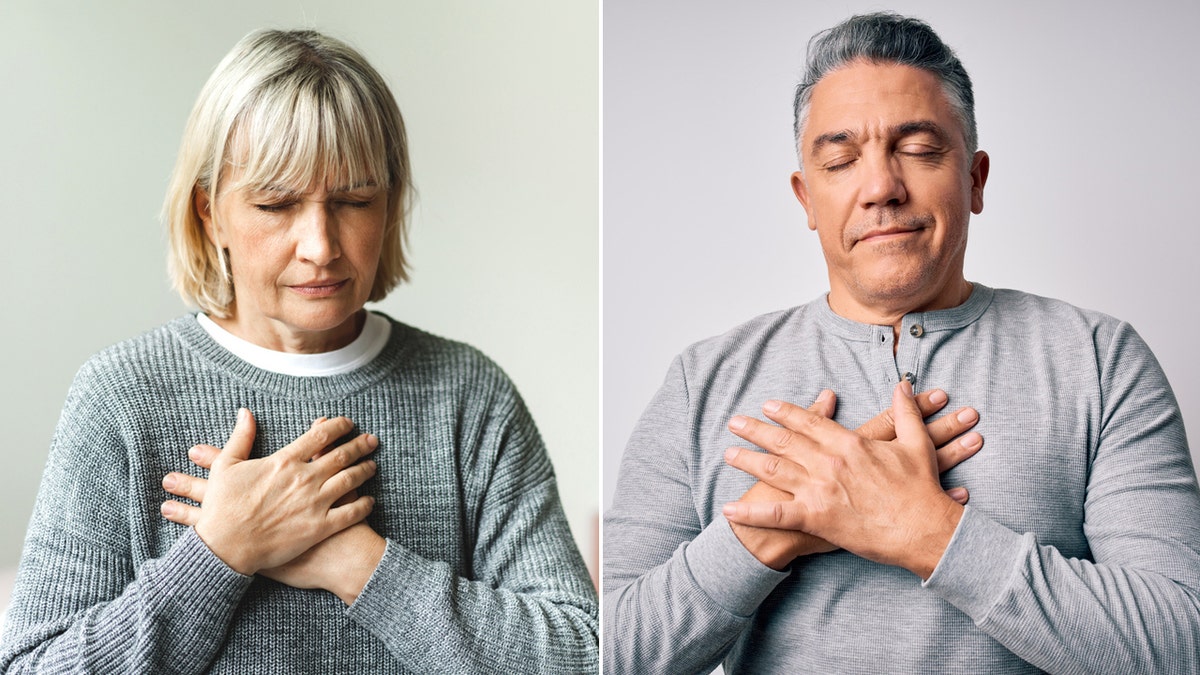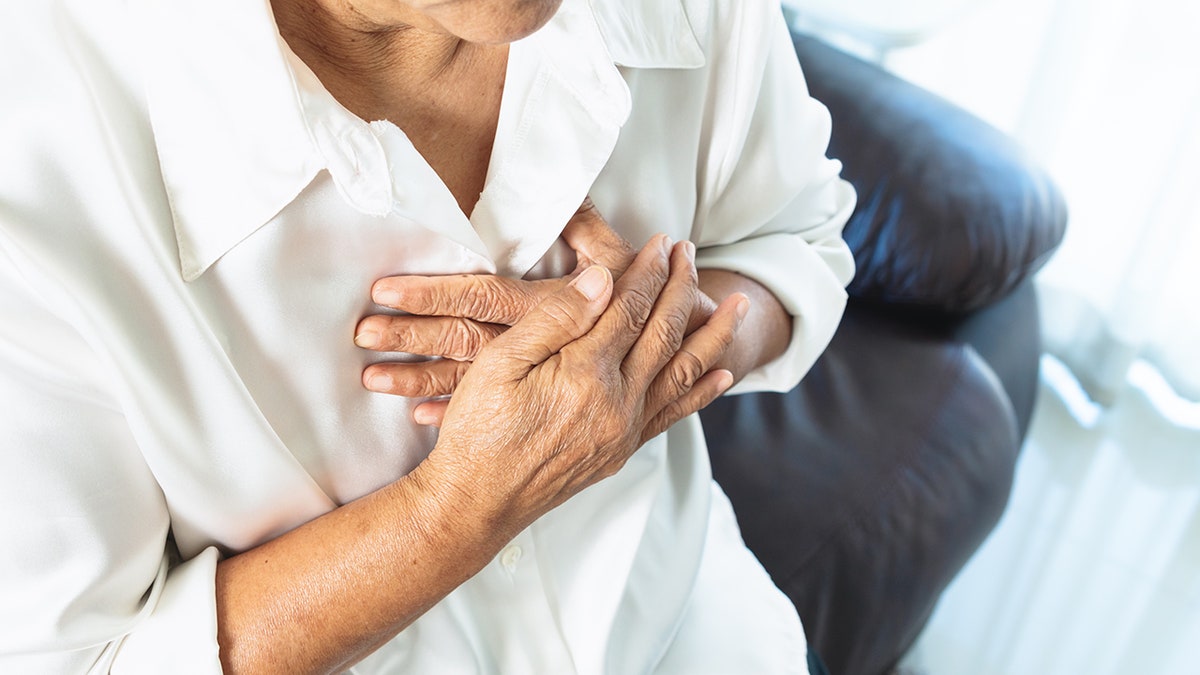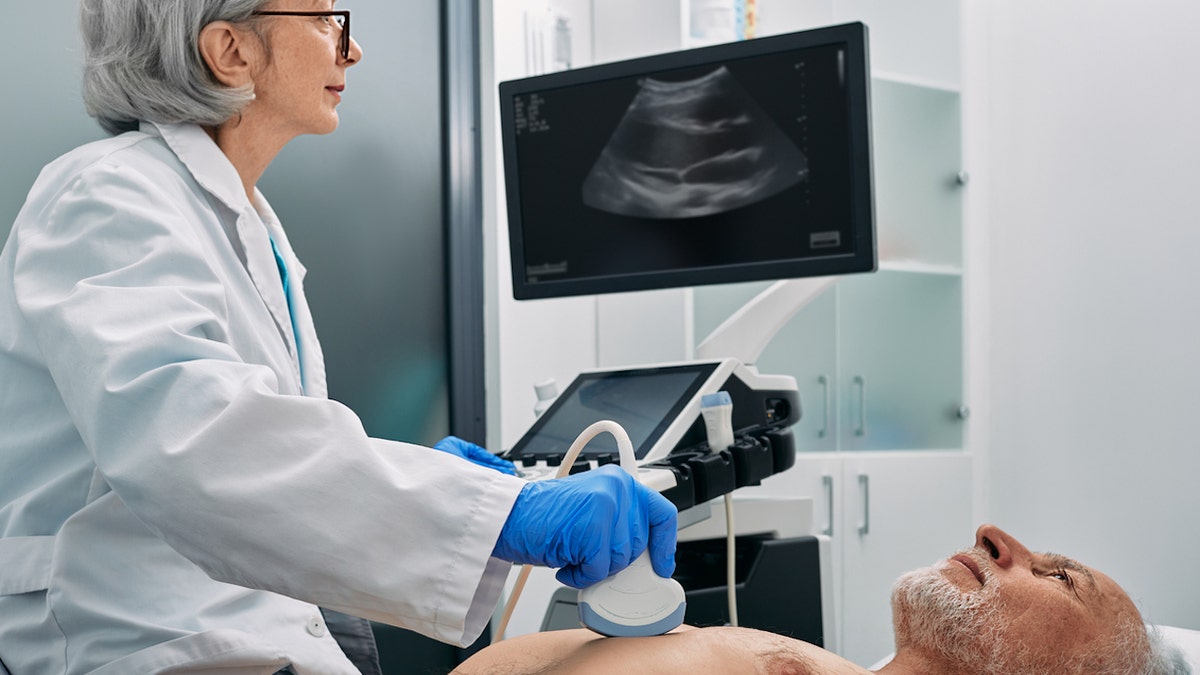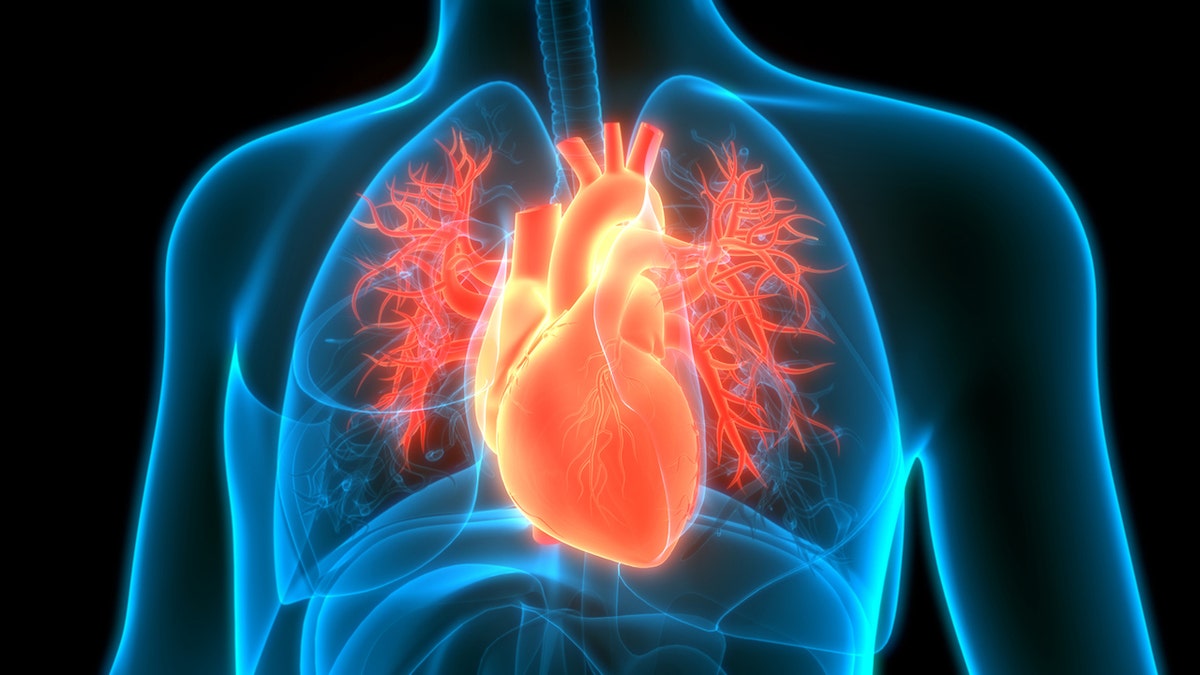Study shows AI can predict heart attacks
Dr. Craig Basman discusses new life-saving technology and the variables that can predict sudden cardiac events.
Half of those who suffer cardiac arrest experience a telling symptom 24 hours before the incident, according to a study recently published in The Lancet Digital Health journal.
This warning symptom was different in men and in women, researchers from Smidt Heart Institute found; the institute is located in the Cedars Sinai Medical Center in Los Angeles.
For women, shortness of breath was the symptom that preceded an impending cardiac arrest, while for men, chest pain was the prominent complaint.
Sweating and seizure-like activity occurred in smaller subgroups of both genders, the researchers noted.
Sudden cardiac arrest outside the hospital has a 90% mortality rate, according to a press release from Cedars Sinai — so it’s essential to recognize early warning signs.

Half of those who suffer cardiac arrest experience a telling symptom 24 hours before the incident, according to a study recently published in The Lancet Digital Health journal. (iStock)
"Harnessing warning symptoms to perform effective triage for those who need to make a 911 call could lead to early intervention and prevention of imminent death," Sumeet Chugh, M.D., director of the Center for Cardiac Arrest Prevention in the Smidt Heart Institute, said in the news release.
"Our findings could lead to a new paradigm for prevention of sudden cardiac death," added Chugh, who is the senior author of the study.
DAILY ASPIRIN AFTER A HEART ATTACK CAN REDUCE THE RISK OF FUTURE EVENTS, STUDY FINDS
To pinpoint how best to predict sudden cardiac arrest, Chugh’s research team gathered community-based data from the ongoing Prediction of Sudden Death in Multi-Ethnic Communities (PRESTO) study in Ventura County, California, and the Oregon Sudden Unexpected Death study (SUDS) in Portland, Oregon, the release stated.
The investigators looked at individual symptoms and sets of symptoms that occurred prior to sudden cardiac arrest and then compared these findings to control groups that also sought emergency medical care.

Shortness of breath was the telling symptom of an impending cardiac arrest for women, according to a new study. (iStock)
"It takes a village to do this work," Chugh said in the release. "We initiated the SUDS study 22 years ago and the PRESTO study eight years ago. These cohorts have provided invaluable lessons along the way."
"Importantly, none of this work would have been possible without the partnership and support of first responders, medical examiners and the hospital systems that deliver care within these communities," he added.
‘LAUGHTER THERAPY’ IS SHOWN TO REDUCE HEART DISEASE RISK IN BRAZILIAN STUDY: 'EXCITING TO SEE'
The PRESTO study showed that 50% of the 823 individuals — all of whom had a sudden cardiac arrest witnessed by a bystander or emergency medicine professional — experienced at least one telltale symptom before their fatal incident.
The SUDS study showed similar results.

Chest pain was the prominent complaint in men before impending cardiac arrest. (iStock)
"This is the first community-based study to evaluate the association of warning symptoms — or sets of symptoms — with imminent sudden cardiac arrest using a comparison group with EMS-documented symptoms recorded as part of routine emergency care," Eduardo Marbán, M.D., PhD, executive director of the Smidt Heart Institute, said in the release.
"Early intervention can make a significant difference in outcomes."
These findings pave the way for further research studies to help better predict imminent sudden cardiac arrest, the investigators said.
"Next, we will supplement these key sex-specific warning symptoms with additional features — such as clinical profiles and biometric measures — for improved prediction of sudden cardiac arrest," Chugh said.
ASK A DOC: 'HOW CAN I PREVENT HIGH CHOLESTEROL?'
One cardiologist who was not involved with the study agreed that this new research highlights findings that can contribute to early detection and prevention of sudden cardiac arrest.
"Identifying specific symptoms that precede such a critical event, and particularly noting the sex-specific differences in these symptoms, has important implications for public health," Dr. Allen Jeremias, M.D., associate director of the Cardiac Catheterization Laboratory at the St. Francis Hospital & Heart Center on Long Island, New York, told Fox News Digital.

"Heart attack or cardiac arrest symptoms are not always the stereotypical chest pain that is commonly associated with men," a cardiologist told Fox News Digital. (iStock)
"If these findings can be translated into clinical practice, they could lead to improved patient outcomes by allowing timely interventions and medical attention."
The study's findings regarding sex-specific differences in heart symptoms are crucial for both health care professionals and patients, Jeremias also noted.
"[The study] highlights that heart-related symptoms might manifest differently in men and women, which can influence how patients and medical practitioners perceive and respond to these symptoms," the doctor said.
"Managing risk factors is crucial for heart health and prevention."
"It's important to educate patients about these differences, emphasizing that heart attack or cardiac arrest symptoms are not always the stereotypical chest pain that is commonly associated with men," Jeremias continued.

"It is important to seek medical attention promptly if any symptoms are experienced, regardless of whether they match the stereotypical heart attack symptoms," the cardiologist said. (iStock)
The cardiologist also said it is important that patients, irrespective of gender, are aware of a broad range of potential red flags, and that they should seek medical attention if they experience any unusual or persistent symptoms.
CLICK HERE TO SIGN UP FOR OUR HEALTH NEWSLETTER
Beyond understanding symptoms, Jeremias noted that patients should be informed about the risk factors for heart disease, such as family history, smoking, high blood pressure, high cholesterol, obesity and a sedentary lifestyle.
"Managing these risk factors is crucial for heart health and prevention," he said.

"Our findings could lead to a new paradigm for prevention of sudden cardiac death," noted the senior author of the study. (iStock)
As each patient is unique, not all individuals will experience the same symptoms — and some may not be typical, Jeremias pointed out.
Health care providers should take a comprehensive approach when evaluating patients, considering their medical history, risk factors and individual symptoms, the cardiologist said.
CLICK HERE TO GET THE FOX NEWS APP
"It is important to seek medical attention promptly if any symptoms are experienced, regardless of whether they match the stereotypical heart attack symptoms," added Jeremias.
"Early intervention can make a significant difference in outcomes."









































